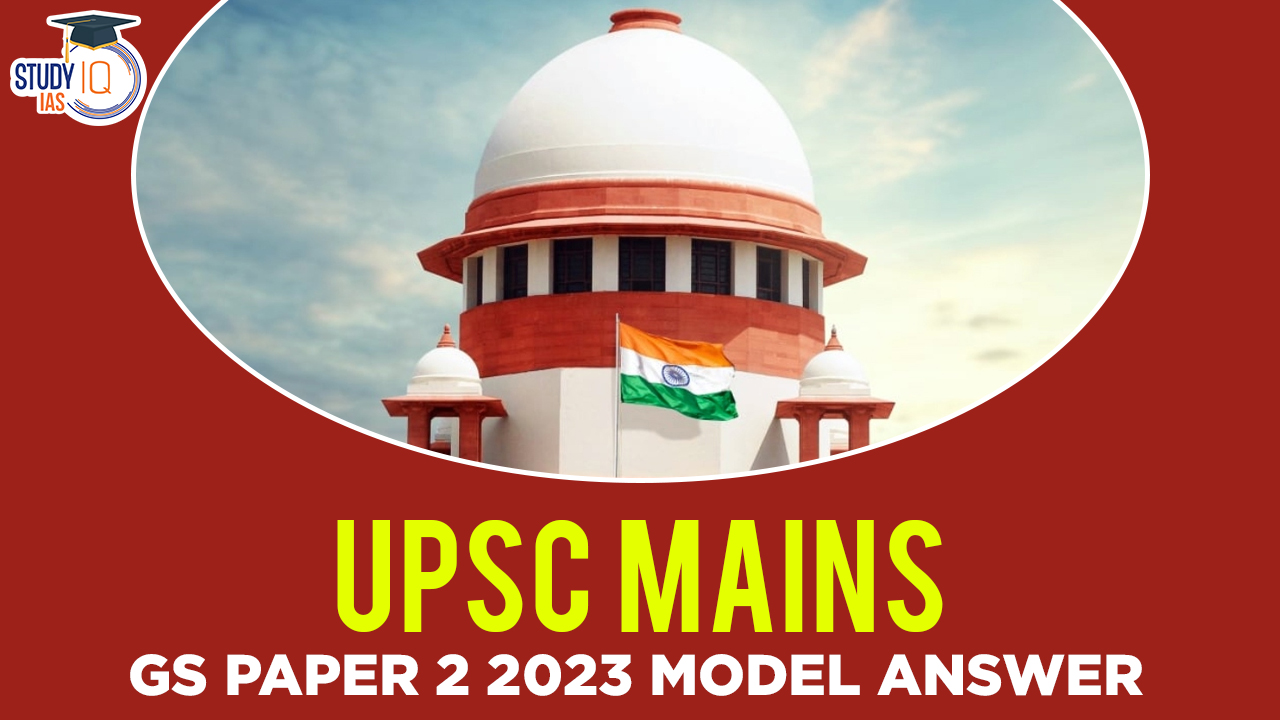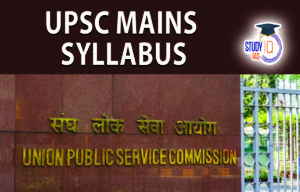Q16. Explain the structure of the Parliamentary Committee system. How far have the financial committees helped in the institutionalization of Indian Parliament? (15m)
Introduction:
It is not feasible to discuss every topic on the floor of the House due to the enormous amount of information and scope of operations. Therefore, parliamentary committees are established to investigate issues of public interest in greater detail and form expert opinions.
Body:
Structure of parliamentary committee system in India:
There are two types of Parliamentary Committees: Standing Committees and Ad Hoc Committees.
- Standing committees: are permanent (constituted every year) and work on a continuous basis. They can be classified into 6 categories:
-
- Financial Committees
- Departmental Standing Committees
- Committees to Enquire
- Committees to Scrutinise and Control
- Committees Relating to the Day-to-Day Business of the House
- House-Keeping Committees or Service Committees
- Ad Hoc Committees: They are temporary. The principal Ad hoc Committees are the Select and Joint Committees on Bills. Further subdivided into Inquiry Committees and Advisory Committees. One can mention more committees under it.
Role played by financial committees in institutionalisation of Indian Parliament:
- Ensuring financial accountability of the Executive: The Public Accounts Committee (PAC) examines the government’s expenditures and financial transactions to keep them in line with budgetary provisions and government policies.
- E.g. scrutinised various government projects and schemes, such as the examination of the 2G spectrum allocation and the Commonwealth Games expenditure.
-
- Consensus based reports: While other Department Related Standing Committees can adopt reports with dissent notes by some members, the PAC must adopt all reports by consensus. This is unique about the PAC, and helps it maintain neutrality.
- Bipartisan platform: Customarily, the leader of the largest opposition party in the Lok Sabha is the Chairperson of the PAC. Hence, It plays a crucial role in scrutinising the use of Government funds without the influence of political parties in power.
- Creating public opinion and awareness: The PAC at times, through its criticism of the inefficient public expenditure of the Government, creates a strong public opinion about the working of the Government.
- Ensuring efficient allocation of public funds: E.g. In 2018, Estimates Committee called chief economic advisor to discuss mounting NPAs of govt banks.
-
- Estimates committee scrutinises the functioning of government ministries and departments in terms of expenditure and utilisation of funds.
- Examining performance of PSUs: Committees on Public Sector Undertaking (PSU) examines the performance of public sector enterprises.
- E.g. It has looked into the functioning of public sector units like Air India, BSNL, and ONGC to assess their financial health and performance.
However, they lack effectiveness due to following issues:
- No mechanisms to enforce the corrective measures.
- Post-expenditure assessment – examines the expenditure which has already been done by the Government.
- Recommendations are advisory in nature and are not binding on the Government.
Conclusion:
Conclude by highlighting the significance of these committees in strengthening the institutionalisation of the Indian Parliament by upholding the principles of financial prudence, accountability, and transparency in the allocation and utilisation of public funds, thereby rightly known as “mini parliaments”.
Check out the UPSC Mains GS Paper 2 2023 Analysis with detailed expatiation of the topics of Mains GS Paper 2 By the Study IQ Experts


 NCERT Books for UPSC Preparation, Check ...
NCERT Books for UPSC Preparation, Check ...
 UPSC Syllabus 2025, Check UPSC CSE Sylla...
UPSC Syllabus 2025, Check UPSC CSE Sylla...
 UPSC Mains Syllabus 2025, Optional Sylla...
UPSC Mains Syllabus 2025, Optional Sylla...





















